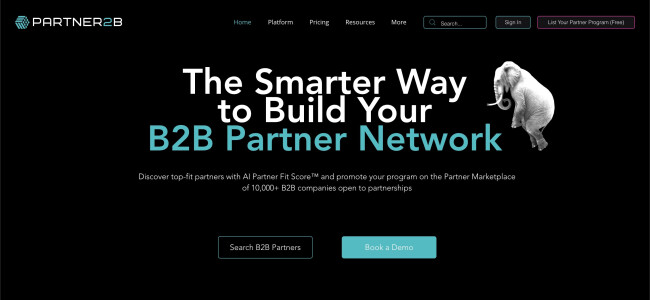
In the ever-evolving landscape of business, organizations are consistently seeking ways to foster growth and enhance their market presence. One of the most effective strategies that has emerged is the implementation of b2b partner programs https://www.partner2b.com/. These programs are designed to create mutually beneficial relationships between businesses, capitalizing on shared goals, resources, and expertise.
Understanding B2B Partner Programs
B2B partner programs are structured frameworks that enable companies to collaborate strategically. The primary objective of these programs is to drive sales, expand market reach, and increase customer satisfaction by leveraging the strengths of each partner involved. These collaborations can take various forms, including reseller partnerships, affiliate programs, referral networks, and technology alliances.
Benefits of B2B Partner Programs
Implementing B2B partner programs offers numerous advantages to businesses. Some of the key benefits include:
- Increased Reach: Partners provide access to new customer segments and markets that may otherwise be difficult to penetrate.
- Shared Resources: Organizations can share costs and resources, thereby optimizing their operational efficiency.
- Accelerated Innovation: Collaboration fosters an environment for innovation, as partners can combine their strengths to develop new products and services.
- Enhanced Credibility: Partnering with reputable organizations can enhance a company’s credibility and reputation in the market.
- Improved Customer Experience: By leveraging partner expertise, businesses can offer enhanced solutions that cater to customer needs more effectively.
Types of B2B Partner Programs
There are various types of B2B partner programs, each tailored to specific business needs and objectives. Here are some of the most common types:
1. Reseller Programs
Reseller programs allow partner companies to sell a vendor’s products or services under their own brand. This model is prevalent in the technology sector, where software and hardware products are often sold through resellers who manage customer relationships and provide support.
2. Affiliate Programs
Affiliate programs offer businesses a way to reward partners for generating leads or sales through their marketing efforts. In this model, partners earn a commission for each sale they refer to the primary business.
3. Referral Programs

Referral programs incentivize businesses and individuals to refer new clients to a company in exchange for a reward, such as discounts or financial incentives. This is a cost-effective way to generate leads through word-of-mouth marketing.
4. Technology Alliances
Technology alliances are partnerships between companies that offer complementary technology solutions. By facilitating integration and collaboration between technologies, these alliances can enhance product offerings.
5. Strategic Partnerships
Strategic partnerships are long-term collaborations that align with a company’s overall business strategy and objectives. They often involve joint ventures, co-marketing agreements, or shared research and development initiatives.
Best Practices for Successful B2B Partner Programs
To ensure the success of a B2B partner program, businesses should consider the following best practices:
- Clear Objectives: Define clear goals and objectives for the partner program to ensure alignment with broader business strategy.
- Comprehensive Training: Provide partners with comprehensive training and resources to help them effectively promote and sell your products or services.
- Transparent Communication: Maintain open lines of communication with partners to address any challenges and gather feedback for continuous improvement.
- Performance Metrics: Establish performance metrics to evaluate the success of the partnership and identify areas for growth.
- Support and Incentives: Offer ongoing support and incentives to motivate partners and encourage loyalty.
Challenges in B2B Partner Programs
While B2B partner programs bring numerous benefits, they are not without challenges. Businesses may face issues such as:
- Misalignment of Goals: Partners may have different objectives that do not align with the primary business, leading to conflicts and inefficiencies.
- Communication Barriers: Poor communication can lead to misunderstandings and a lack of trust between partners.
- Resource Allocation: Balancing the resources invested in the partner program and other business initiatives can be a challenge, particularly for small businesses.
- Performance Monitoring: Measuring the success of partner programs can be complex, requiring robust analytics and tracking methodologies.
The Future of B2B Partner Programs
As businesses continue to embrace digital transformation, the landscape of B2B partner programs is expected to evolve. The adoption of advanced technologies, such as artificial intelligence and data analytics, will enable more precise targeting and personalization within partner programs. Additionally, as customer expectations increase, businesses will need to adapt their partner strategies to deliver exceptional experiences.
In conclusion, B2B partner programs play a crucial role in driving business growth, innovation, and customer satisfaction. By understanding the different types of programs and implementing best practices, organizations can create successful partnerships that benefit all parties involved. As the business environment continues to change, staying ahead of trends and challenges will be essential for businesses looking to maximize the potential of their partner programs.
